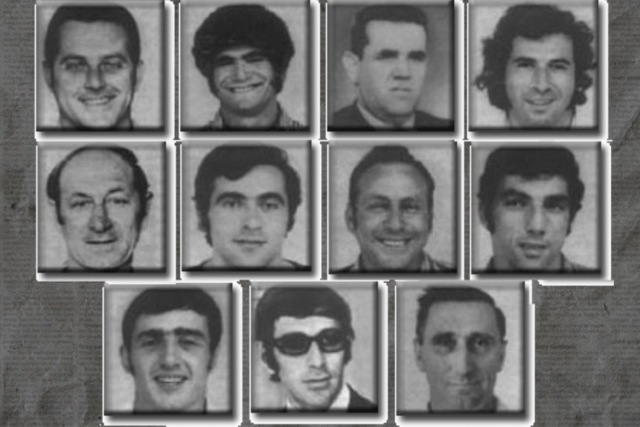On January 12th, 1977, large protests broke out all throughout Israel immediately after the French government announced they would be releasing Abu Daoud, the person regarded as the mastermind behind the Munich massacre in 1972. Mohammad Daoud Oudeh, or Abu Daoud who managed to escape towards Syria and Lebanon after the massacre that killed close to a dozen Israeli athletes, was intercepted by French police while traveling from Beirut into Europe.
The French government, who was being petitioned by the PLO for Oudeh’s release on the grounds of diplomatic immunity to his traveling to a comrade’s funeral, eventually caved to the terrorist organization’s pressure while ignoring West Germany’s extradition request. Before the Germans could request the French respect their sovereignty once more, Oudeh was already on a plane to Algeria under the authorization of France and in complete disregard to the clauses binding them with Germany through the European Union.
"In Palestinian ideology and memory" the Munich massacre "is a source of pride and honor." PA and Fatah "leaders glorify the murderous attack and revere its planners as 'heroes' and role models," writes Nan Jacques Zilberdik of @palwatch. https://t.co/FDKiAIoFWs
— Algemeiner (@Algemeiner) September 7, 2022
Oudeh was born in the Arab neighborhood of Silwan in East Jerusalem, which was built on top of an ancient Jewish graveyard in a Jordanian effort to hide Jewish presence in the land, and received his law degree in Qatar. In 1967, after Jordan's defeat and retreat from East Jerusalem, Oudeh fled to Jordan and joined his fellow Palestinian militants who organized and planned terrorist activities both against Israel and the ruling Hashemite Kingdom of Jordan. In the early 70s, when the PLO was expelled from Jordan due to domestic terrorism, Oudeh fled for Lebanon where he would plan out his masterpiece, later known as the Munich massacre. Frequently flying to Eastern Europe, Oudeh established connections with former Nazis and Neo-Nazis, who would help him in the execution of his plans for the upcoming Olympics.
The French detention of Oudeh, in hindsight, was the last plausible opportunity for the West German government and Israel to deliver justice for the killings of both Israeli and German citizens that took place during the dreadful multi-day hostage crisis in Munich. As a result, the Israeli public became furious with the French decision and partly blamed their colonial connection to Lebanon for aiding Oudeh’s escape.
Upon the death of Palestinian terrorist Mohammad Daoud Oudeh in Damascus 2010, the PLO's Mahmoud Abbas wrote, "He is missed. He was one of the leading figures of Fatah and spent his life in resistance and sincere work as well as physical sacrifice for his people's just causes." pic.twitter.com/wJQWBSN0rh
— Avi Kaner ابراهيم אבי (@AviKaner) August 20, 2020
In a 2006 interview just after the release of the Steven Spielberg film “Munich”, Abu Daoud noted that "I regret nothing. You can only dream that I would apologize." Oudeh lived out his days in Syria with his wife and children. Until his dying breath in 2010, Oudeh showed absolutely no regret for his murderous actions. His funeral was attended by his fellow Fatah comrades and he was recognized by the Palestinian Authority as a hero. Abu Mazen, the current leader of the Palestinian Authority released a statement after Odeh’s death saying "He is missed. He was one of the leading figures of Fatah and spent his life in resistance and sincere work as well as physical sacrifice for his people's just causes."
#Munich #Massacre: The 1972 Slaughter of #Israeli #Athletes on #German Soil.
— Jonah (@jonahelshout) October 29, 2019
Attack’s mastermind, Black September leader Mohammad Daoud Oudeh, told Sports Illustrated that the attack was financed by #MahmoudAbbas >
"Partner" for #Peace & applauded by #EU ?https://t.co/KKR5iMHsDe
Abbas was also involved in the planning of the Munich event and often praises terror attacks in Israel. Despite the agreements, Palestinian leaders have signed, most notably the Oslo and Oslo II accords in which Palestine officially acknowledged Israel and affirmed its right to exist, the leadership encourages delegitimization and even teaches it in the school system. It is thought that the agreements were signed only to qualify for the billions of dollars in aid the Palestinian administration gets. The PA is run for the most part by former PLO and Fatah officials, both were considered terrorist organizations prior to the Oslo accords.


